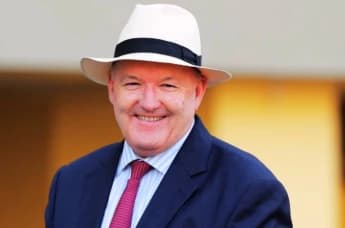Ruby Walsh Backs Cheltenham Festival Changes to Boost Competitiveness and Field Sizes

‘Cheltenham is the pinnacle of jump racing and these changes help to maintain that’.
Ruby Walsh, the most successful rider in Cheltenham Festival history with 59 wins, has expressed his support for the recent changes to the Festival programme, which are expected to bolster both the competitiveness and field sizes of the event. Six significant modifications have been made, including the replacement of the Turners Novices' Chase with a Grade Two limited novice handicap and the opening of the National Hunt Chase to professional jockeys, transforming it into a novice handicap chase for horses rated 0-145.
Other notable adjustments include the Glenfarclas Cross Country Chase becoming a limited handicap, the Ryanair Mares' Novices' Hurdle switching to a level weights contest, and changes to the Pertemps Final that guarantee a run for all qualifier winners who meet the weight requirements. Furthermore, entries for non-novice Festival handicaps now require horses to have run four times over fences and five times over hurdles.
Walsh, who was consulted as part of the Jockey Club’s review, believes these changes will elevate the competition come March.
“All the changes are geared towards making the races more competitive. The aim is to attract as many of the best horses as possible and to have them running in the right races,” said Walsh. "Cheltenham is the pinnacle of jump racing, and these changes help to maintain that."

He also highlighted the potential positive impact of these changes beyond the Festival itself, particularly during the winter season:
"By increasing the number of required runs, hopefully, you’ll have more of the right horses in the right races. It should also increase competition and field sizes throughout the winter, which can only be a good thing."
Paul Nicholls, a 14-time champion National Hunt trainer with 49 Festival winners, also weighed in, calling the changes "very sensible" and noting that while opinions may vary, the ultimate goal is to keep Cheltenham’s racing as competitive as possible.
These alterations are part of a broader effort to keep the Cheltenham Festival at the forefront of the National Hunt racing calendar, ensuring it remains the most competitive event of the season.






